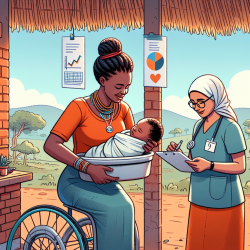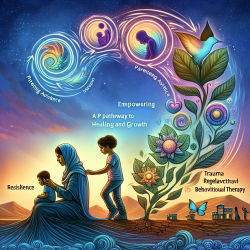Introduction
In the realm of maternal and newborn health, the needs of women with walking disabilities often go unnoticed, leading to significant disparities in healthcare access and outcomes. The research article titled "Maternal and newborn health needs for women with walking disabilities; 'the twists and turns': a case study in Kibuku District Uganda" sheds light on these challenges and provides valuable insights for practitioners seeking to improve their skills and create better outcomes for this marginalized group.
Understanding the Unique Needs
The study conducted in Kibuku District, Uganda, highlights the multifaceted needs of women with walking disabilities. These needs are categorized into four main areas:
- Psychosocial Needs: Acceptance from partners, families, communities, and health workers is crucial. Stigmatization and negative perceptions often lead to isolation and lack of support.
- Mobility Needs: Transportation challenges, including high costs and unsuitability of available options, hinder access to healthcare facilities.
- Health Facility Needs: Infrastructural barriers, such as high examination beds and lack of ramps, limit accessibility. Responsive health services are essential to cater to their specific needs.
- Personal Needs: Basic necessities like protective wear and birth preparedness items are often inaccessible due to financial constraints.
Implications for Practitioners
Practitioners can play a pivotal role in addressing these needs by implementing data-driven strategies and advocating for systemic changes. Here are some actionable steps:
- Enhance Sensitization: Educate communities and healthcare providers about the unique challenges faced by women with walking disabilities to foster acceptance and reduce stigma.
- Improve Accessibility: Advocate for infrastructural improvements in healthcare facilities, such as ramps and adjustable examination beds, to accommodate women with disabilities.
- Promote Inclusive Policies: Collaborate with policymakers to develop and implement policies that prioritize the needs of women with disabilities in maternal and newborn health services.
- Encourage Research: Conduct further research to explore innovative solutions and gather data to support advocacy efforts.
Conclusion
Addressing the maternal and newborn health needs of women with walking disabilities requires a comprehensive approach that combines education, advocacy, and policy changes. By implementing the insights from this study, practitioners can contribute to creating a more inclusive and equitable healthcare system.
To read the original research paper, please follow this link: Maternal and newborn health needs for women with walking disabilities; “the twists and turns”: a case study in Kibuku District Uganda.










